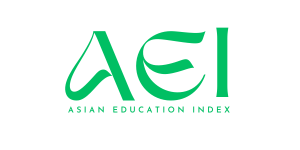Quality Indicators of Primary Education in General Education Schools in Jizzakh Region (2020-2023)
Keywords:
Finland, education, quality indicators, innovative newsAbstract
This article reflects on the work of general education schools in Jizzakh region through the experience of Finland
References
Bloom, A. (1987). The closing of the American mind: How higher education has failed democracy and impoverished the souls of today’s students. New York: Simon and Schuster.
Bromley, H. (1998). Introduction: Data-driven democracy? Social assessment of educational computing. In H. Bromley & M. Apple (Eds.), Education, technology, power (pp. 1–28). Albany, NY: SUNY Press.
Bruce, B. C. (1993). Innovation and social change. In B. C. Bruce, J. K. Peyton, & T. Batson (Eds.), Network-based classrooms (pp. 9–32). Cambridge, UK: Cambridge University Press.
Bruce, B. C. (1997). Literacy technologies: What stance should we take? Journal of Literacy Research, 29(2), 289–309.
Bruce, B. C., & Hogan, M. C. (1998). The disappearance of technology: Toward an ecological model of literacy. In D. Reinking, M. McKenna, L. Labbo, & R. Kieffer (Eds.), Handbook of literacy and technology: Transformations in a post-typographic world(pp. 269–281). Hillsdale, NJ: Erlbaum.
Casement, W. (1997). The great canon controversy: The battle of the books in higher education. Somerset, NJ: Transaction Publishers.
Clark, C. M., & Peterson, P. (1986). Teachers’ thought processes. In M. C. Wittrock (Ed.), Handbook of research on teaching (3rd ed.; pp. 255–296). New York: Macmillan.
Dewey, J., & Bentley, A.F. (1949). Knowing and the known. Boston: Beacon.
Duncker, K. (1945). On problem solving. Psychological Monographs, 58(5), 1–110.
Ertmer, P. A. (2005). Teacher pedagogical beliefs: The final frontier in our quest for technology integration. Educational Technology, Research and Development, 53(4), 25–39.
Glaser. R. (1984). Education and thinking: The role of knowledge. American Psychology, 39(2), 93–104.
Jackson, P. W. (1968). Life in the classroom. New York: Holt, Rinehart and Winston.
Koehler, M.J., & Mishra, P. (2008). Introducing TPCK. AACTE Committee on Innovation and Technology (Ed.), The handbook of technological pedagogical content knowledge (TPCK) for educators (pp. 3–29). Mahwah, NJ: Lawrence Erlbaum Associates.
Downloads
Published
Issue
Section
License

This work is licensed under a Creative Commons Attribution-NonCommercial 4.0 International License.
User Rights
Under the Creative Commons Attribution-NonCommercial 4.0 International (CC-BY-NC), the author (s) and users are free to share (copy, distribute and transmit the contribution).
Rights of Authors
Authors retain the following rights:
1. Copyright and other proprietary rights relating to the article, such as patent rights,
2. the right to use the substance of the article in future works, including lectures and books,
3. the right to reproduce the article for own purposes, provided the copies are not offered for sale,
4. the right to self-archive the article.













